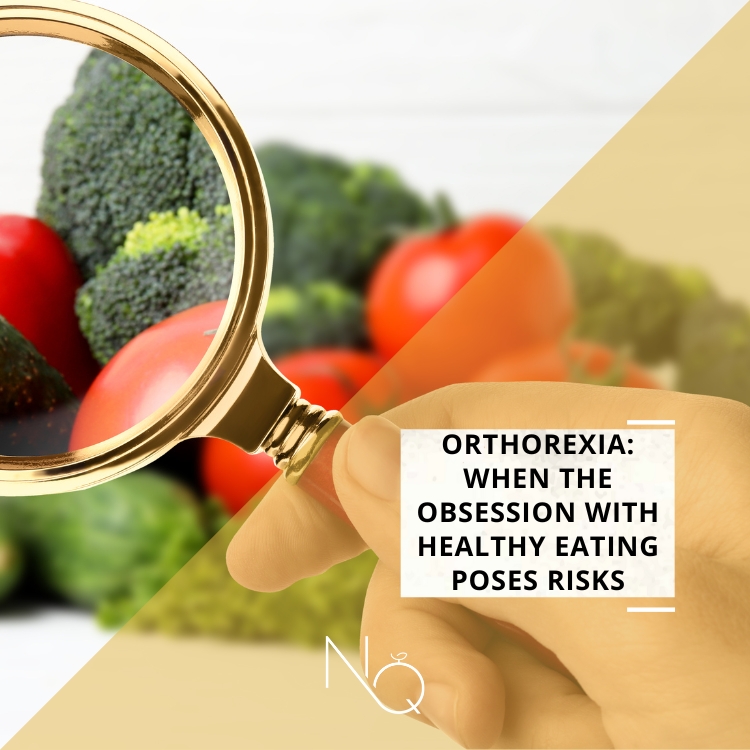Orthorexia is not officially recognized by the DSM-5 Diagnostic and Statistical Manual. However, it appears to be an eating disorder that is becoming more common.
What is Orthorexia?
By the term "orthorexia," we mean the obsession with proper or healthy eating. People who have orthorexia become so fixated on following a healthy eating plan that they harm their well-being and face health consequences such as malnutrition or impaired psychosocial functioning. This disorder is often linked to anorexia nervosa, as one of the symptoms of the latter is the obsession with eating certain healthy foods.
Studies have shown that dietetics students are a high-risk group for developing orthorexia due to constant exposure to knowledge and information about food and its relationship to health. People involved in championships also have a high risk of orthorexia, as they undergo regular weigh-ins and need to follow a specific nutritional plan (often strict) that will meet the needs of their training, and matches, and also keep them at a certain weight. In addition, it is worth mentioning that this disorder is more common in men than in women, particularly in those around thirty years of age.
Signs and Symptoms of Orthorexia
A person who has orthorexia may experience the following signs and symptoms:
- Preoccupation with meals to be consumed for more than three hours daily and planning them days before consumption.
- Considering the nutritional value of the meal is more important than the pleasure of eating it.
- Mandatory checking of the nutrition labels of the food the person is about to consume.
- Increased concern about how beneficial a label's ingredients are.
- Gradual restriction of food groups consumed.
- Rejecting foods not on the narrow allowed list that the person has defined.
- The feeling of superiority over the diet followed and dissatisfaction with the eating behaviors and beliefs of others.
- High levels of perfectionism and strict adherence to the nutritional plan.
- Showing intense concern when "safe" or "healthy" foods are unavailable, such as at outings.
- The obsessive search for information about a healthy eating pattern, such as through the internet.
- Concern about body image.
- Imposing punishment when deviating from the diet plan.
Treatment of Orthorexia
The treatment of people with orthorexia involves the collaboration of a multidisciplinary team that includes a psychologist/psychiatrist, a dietitian who specializes in eating disorders, and other specialists. The dietitian should aim to create a balanced and flexible eating plan focusing on reintroducing previously avoided foods and developing a healthy relationship with food.
Orthorexia, i.e., the preoccupation with a healthy diet, is an eating disorder and needs treatment. If the person or their relatives recognize any symptoms it is vital to refer to a specialist to address the issue.
Bibliography
Scarff JR. Orthorexia Nervosa: An Obsession With Healthy Eating. Fed Pract. 2017 Jun;34(6):36-39. PMCID: PMC6370446. PMID: 30766283.
Gkiouleka M, Stavraki C, Sergentanis TN, Vassilakou T. Orthorexia Nervosa in Adolescents and Young Adults: A Literature Review. Children (Basel). 2022 Mar 4;9(3):365. doi: 10.3390/children9030365. PMID: 35327737; PMCID: PMC8947656.
Niedzielski A, Kaźmierczak-Wojtaś N. Prevalence of Orthorexia Nervosa and Its Diagnostic Tools—A Literature Review. Int J Environ Res Public Health. 2021 May 20;18(10):5488. doi: 10.3390/ijerph18105488. PMID: 34065506; PMCID: PMC8160773.




